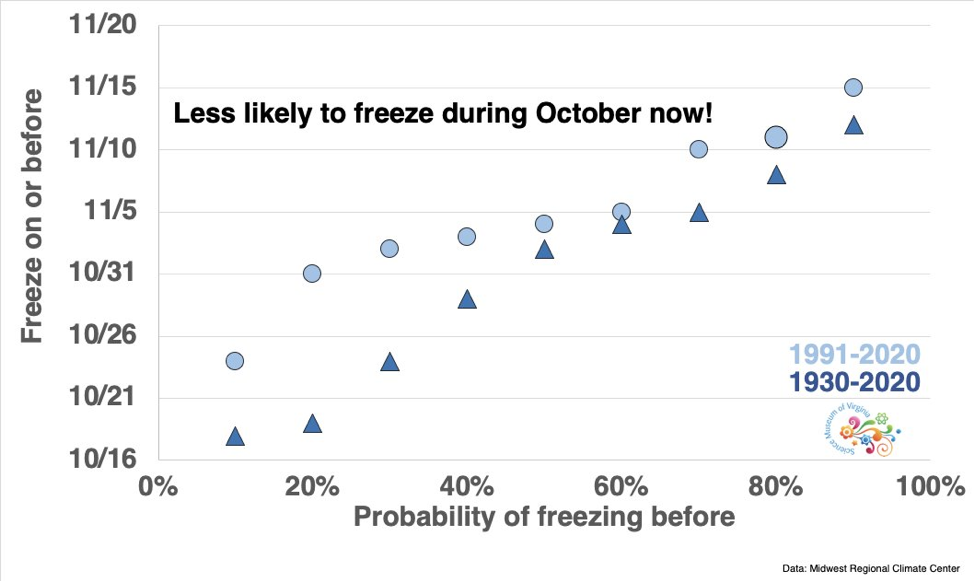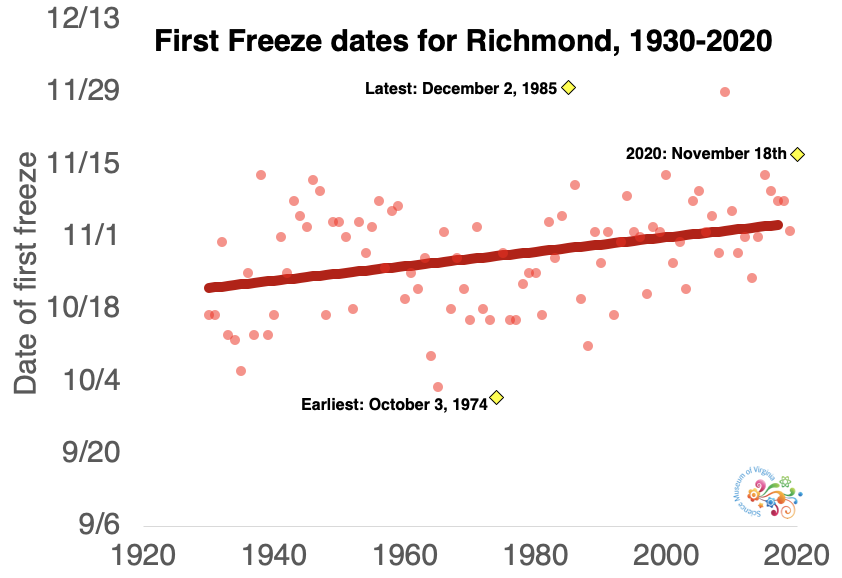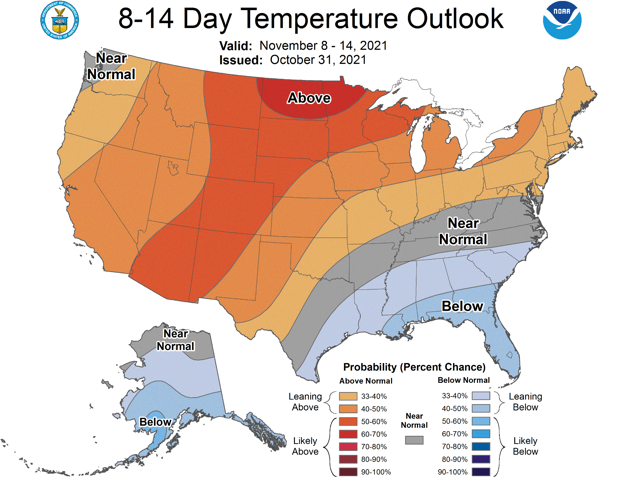Say Freeze!
The cool and crisp temperatures in Richmond this morning got us thinking about when we can expect Richmond's first freeze, or the first overnight low with temperatures ≤ 32 °F. Let's dig into the numbers and reflect on what it means. Here’s a quick look at stats on the long-term record of first freeze dates that were observed at Richmond International Airport from 1930 to 2020.
The latest first freeze on record in Richmond was December 2, 1985. The earliest was October 3, 1974. The long-term record suggests our average first freeze occurs on October 30. In 2020, the first freeze didn’t occur until November 18! But that doesn't tell the whole story.
When looking at the last 30 years, from 1991 to 2020, compared to the long-term average, the first freeze now occurs closer to November 5, about one week later than the long-term average. Chances of seeing the first freeze before November 1 are now less than 20% compared to about 50% for long-term average.

In other words, Richmond’s first freeze date is shifting later into autumn. This is in line with observations from around Virginia and rest of the country. On the graph below, the thick red line moving closer to the top from left to right side shows this trend.

What does a later first freeze mean? Longer frost-free seasons prolong the survival of disease-carrying pests (think mosquito bites on Halloween!) and extend the life of pollen-producing allergenic weeds like ragweed (there’s more on worsening North American pollen seasons here: https://www.pnas.org/content/118/7/e2013284118/tab-figures-data). This shift also complicates managing water resources and harvest dates for extremely important crops grown in Virginia.
These later first freeze dates—and their corresponding earlier spring time last freeze dates—are one of the clearest examples of human-caused climate change happening locally.
So, what about 2021? NBC 12 Meteorologist Andrew Freiden’s forecast calls for cooler-than-average temperatures through the first week of November, but low temperatures are not yet predicted to dip below freezing.
The NOAA National Weather Service Climate Prediction Center’s 8-to-14-day forecast calls for “near normal” conditions next week. That seems unlikely to give us temperatures that will produce our first freeze of 2021, but we’ll have to wait and see weather—ahem, we mean whether—is happens soon!


